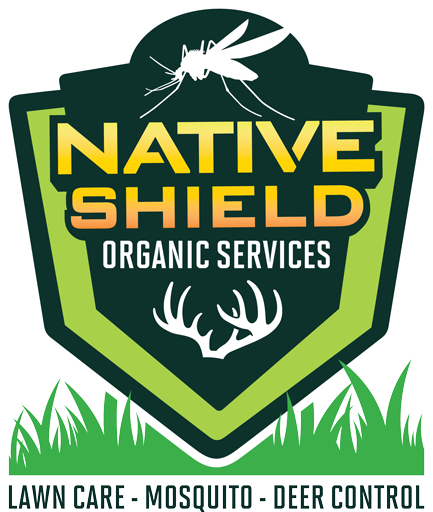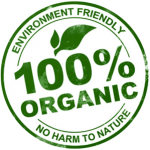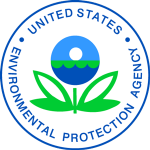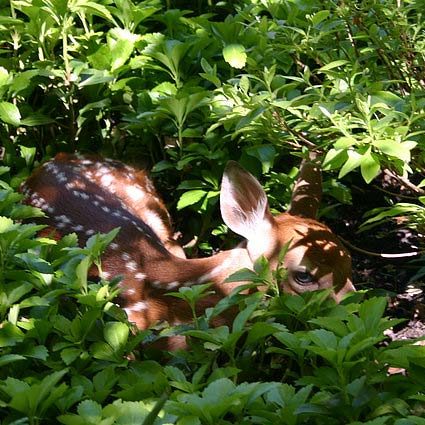
An organic way to
Keep Deer Away
From Your Plants
Deer eat the grass, destroy gardens, and carry an abundance of fleas along with ticks that transmit Lyme disease. Native Shield creates an organic barrier you can trust for complete deer control in Cincinnati.
Deer Control FAQ
All Cincinnati deer control products are organic and contain no chemicals. Our product is environmentally safe and will not harm people, pets, or even the deer. The formulation is a dual taste and smell deterrent and trains deer to change their eating habits. Deer have a sense of smell that is 80 times that of a human. The smell and taste are very unappealing but virtually odorless to humans.
Treatments include perennials, shrubs, and ornamentals that deer typically browse.
Every 21 days we will treat your property to repel deer. Our service is necessary during the growing season as new plant growth constantly appears.
You can plant what you love instead of being limited to deer resistant plants. You will save money by not having to replace flowers and shrubs. Decreasing deer traffic on your property will also reduce droppings and ticks, which is why we recommend deer control.
We guarantee you will be satisfied with the dramatic results of our deer control services in Cincinnati without the hassle of being locked into a contract. And if you feel your treatment wasn't effective, we will come retreat your property free of charge.
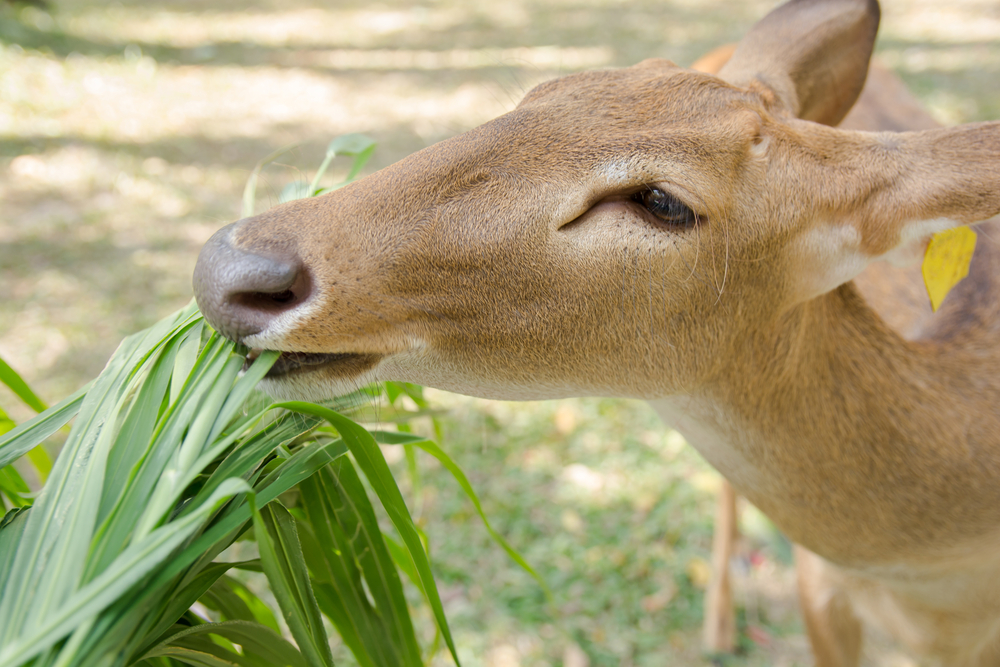
HOW DOES IT WORK?
PLAN
Native Shield provides a property analysis to determine your existing deer damage and will provide a recommended treatment plan.
TREAT
We start a program by applying our organic deer repellent to selected plant material. This keeps deer out & prevents future damage.
REPEAT
Routine and consistent treatments interrupt deer feeding habits. This results in your landscape no longer being a preferred food source.
